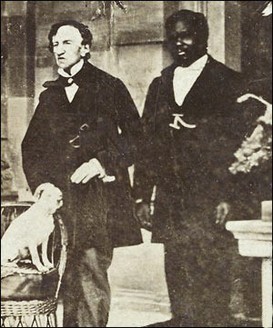Pioneering Surgeon

Dr. James Barry was buried a man, is remembered as a woman but remains an enigma.
Born Margaret Bulkley, Dr. James Barry became a pioneering surgeon. Found to be anatomically female only in death, Barry spent life as a military man serving the wounded of war.
Born in Ireland, Barry was the child of a middle-class parents, Jeremiah and Mary Ann Bulkley. The family fell on hard times and Jeremiah ended up in Debtors Prison. In the early 1800s, Mary Ann took her daughter to London to stay with an uncle, James Barry, who was an Irish artist. James Barry died in 1809 but his name did not; it, along with a small fortune, went into the possession of Margaret Bulkley who used both the name and money to become Dr. James Barry. The diminutive, young-looking figure travelled to Edinburgh University to study a degree in Medicine. Upon completion of the degree, Barry moved back to London to begin an apprenticeship in surgery.
Barry’s well-documented army career began in 1813. When the doctor rose to the rank of Inspector General, both sanitation and nutrition in military hospitals were radically improved. Barry also performed the first caesarean section in Africa after which both mother and child survived. Through living as a man, Barry was 50 years ahead of history. At that time, no woman could perform surgery or serve in the military due to employment restrictions.
Dr. James Barry died of dysentery, with no known next of kin. Appropriated in posterity by the feminist cause, the legacy is a complex one. In an age of non-binary sexuality, is Barry best remembered as transgendered? Or, like feminists, should we see Barry as the first woman to qualify as a doctor? Barry’s sex was not revealed until the famed doctor died, a crucial but often ignored detail. A man's name adorns the headstone, but the history books remember a woman. This legacy will only continue to resonate.
Born Margaret Bulkley, Dr. James Barry became a pioneering surgeon. Found to be anatomically female only in death, Barry spent life as a military man serving the wounded of war.
Born in Ireland, Barry was the child of a middle-class parents, Jeremiah and Mary Ann Bulkley. The family fell on hard times and Jeremiah ended up in Debtors Prison. In the early 1800s, Mary Ann took her daughter to London to stay with an uncle, James Barry, who was an Irish artist. James Barry died in 1809 but his name did not; it, along with a small fortune, went into the possession of Margaret Bulkley who used both the name and money to become Dr. James Barry. The diminutive, young-looking figure travelled to Edinburgh University to study a degree in Medicine. Upon completion of the degree, Barry moved back to London to begin an apprenticeship in surgery.
Barry’s well-documented army career began in 1813. When the doctor rose to the rank of Inspector General, both sanitation and nutrition in military hospitals were radically improved. Barry also performed the first caesarean section in Africa after which both mother and child survived. Through living as a man, Barry was 50 years ahead of history. At that time, no woman could perform surgery or serve in the military due to employment restrictions.
Dr. James Barry died of dysentery, with no known next of kin. Appropriated in posterity by the feminist cause, the legacy is a complex one. In an age of non-binary sexuality, is Barry best remembered as transgendered? Or, like feminists, should we see Barry as the first woman to qualify as a doctor? Barry’s sex was not revealed until the famed doctor died, a crucial but often ignored detail. A man's name adorns the headstone, but the history books remember a woman. This legacy will only continue to resonate.

